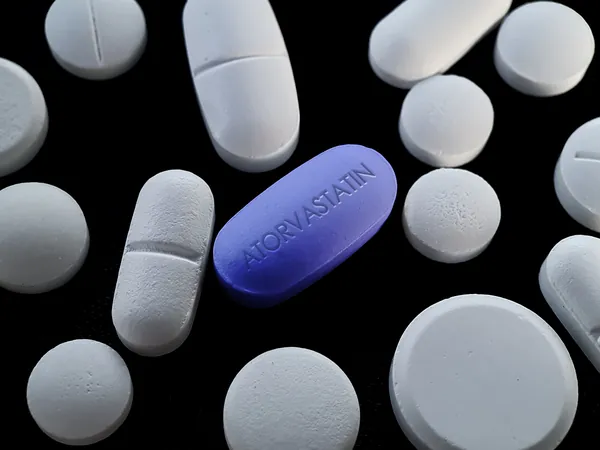
Could Statins be a Game-Changer for Heart Transplant Recipients? New Research Reveals Surprising Findings!
2024-10-01
Recent research presented at the Heart Failure Society of America 2024 Annual Meeting has brought new insights into the role of statins, widely prescribed medications used primarily to lower cholesterol, in heart transplant recipients. Statins, which include popular drugs like atorvastatin (Lipitor) and rosuvastatin (Crestor), were utilized by an astonishing 92 million Americans as of 2019. They are known not only for managing cholesterol levels but also for reducing the risk of cardiovascular disease and overall mortality, especially in high-risk populations.
New findings suggest that these medications may significantly benefit heart transplant recipients by reducing complications post-transplant. Although previous studies indicated similar outcomes, many had limitations such as small sample sizes. The latest investigations, however, offer a deeper understanding of the impact of statins on this vulnerable patient group.
In one pivotal study from the University of California San Diego Cardiovascular Institute, researchers analyzed the medical records of 87 heart transplant patients from 2019 to 2020. The study aimed to uncover the differences in statin regimens, lipid profiles, and the development of cardiac allograft vasculopathy (CAV) between patients identified as high and low cardiovascular risk before their transplants.
The results revealed that nearly half (49%) of the participants were classified as high-risk based on factors like diabetes history and A1C levels. Interestingly, while high-intensity statin therapy was more common among these high-risk individuals initially, the intensity appeared to diminish by the second year post-transplant. Notably, high-risk patients did show increases in low-density lipoprotein cholesterol (LDL-C), high-density lipoprotein cholesterol (HDL-C), and non-HDL-C levels over time, indicating a potential connection to CAV development.
The researchers concluded that there's a concerning trend where high-risk patients on lower-intensity statin therapy may face heightened risks for vascular complications. They emphasized the necessity for more tailored approaches to statin regimes post-heart transplant, based on both pre- and post-operative cardiovascular risk assessments.
A second study presented at the meeting was a meta-analysis encompassing 11 studies with over 2,800 participants. This robust analysis determined that statin use correlates with a staggering 72% reduction in all-cause mortality among heart transplant patients, along with significant reductions in major graft rejection (63%) and CAV (67%).
The authors of the meta-analysis stated, “This reinforces the potential of statins to improve survival rates and reduce severe complications like cardiac allograft vasculopathy and rejection in heart transplant recipients.” However, they cautioned that more extensive, placebo-controlled trials are essential to validate these promising results further.
With these exciting developments in mind, researchers and healthcare professionals are left to ponder whether statins could indeed become a standard part of post-transplant care, potentially transforming outcomes for heart transplant recipients globally. The future of heart transplant success may be just a pill away!


 Brasil (PT)
Brasil (PT)
 Canada (EN)
Canada (EN)
 Chile (ES)
Chile (ES)
 España (ES)
España (ES)
 France (FR)
France (FR)
 Hong Kong (EN)
Hong Kong (EN)
 Italia (IT)
Italia (IT)
 日本 (JA)
日本 (JA)
 Magyarország (HU)
Magyarország (HU)
 Norge (NO)
Norge (NO)
 Polska (PL)
Polska (PL)
 Schweiz (DE)
Schweiz (DE)
 Singapore (EN)
Singapore (EN)
 Sverige (SV)
Sverige (SV)
 Suomi (FI)
Suomi (FI)
 Türkiye (TR)
Türkiye (TR)